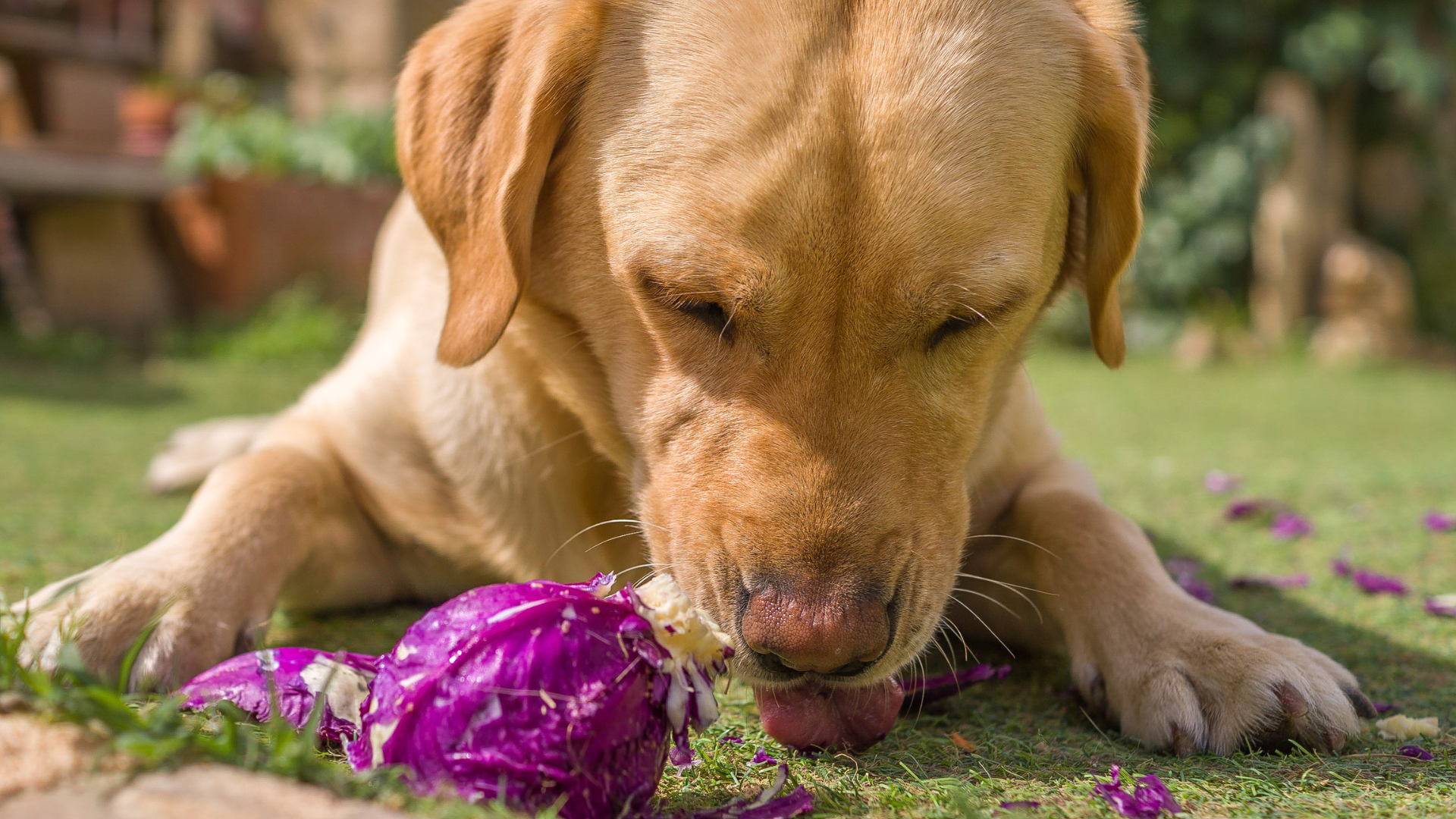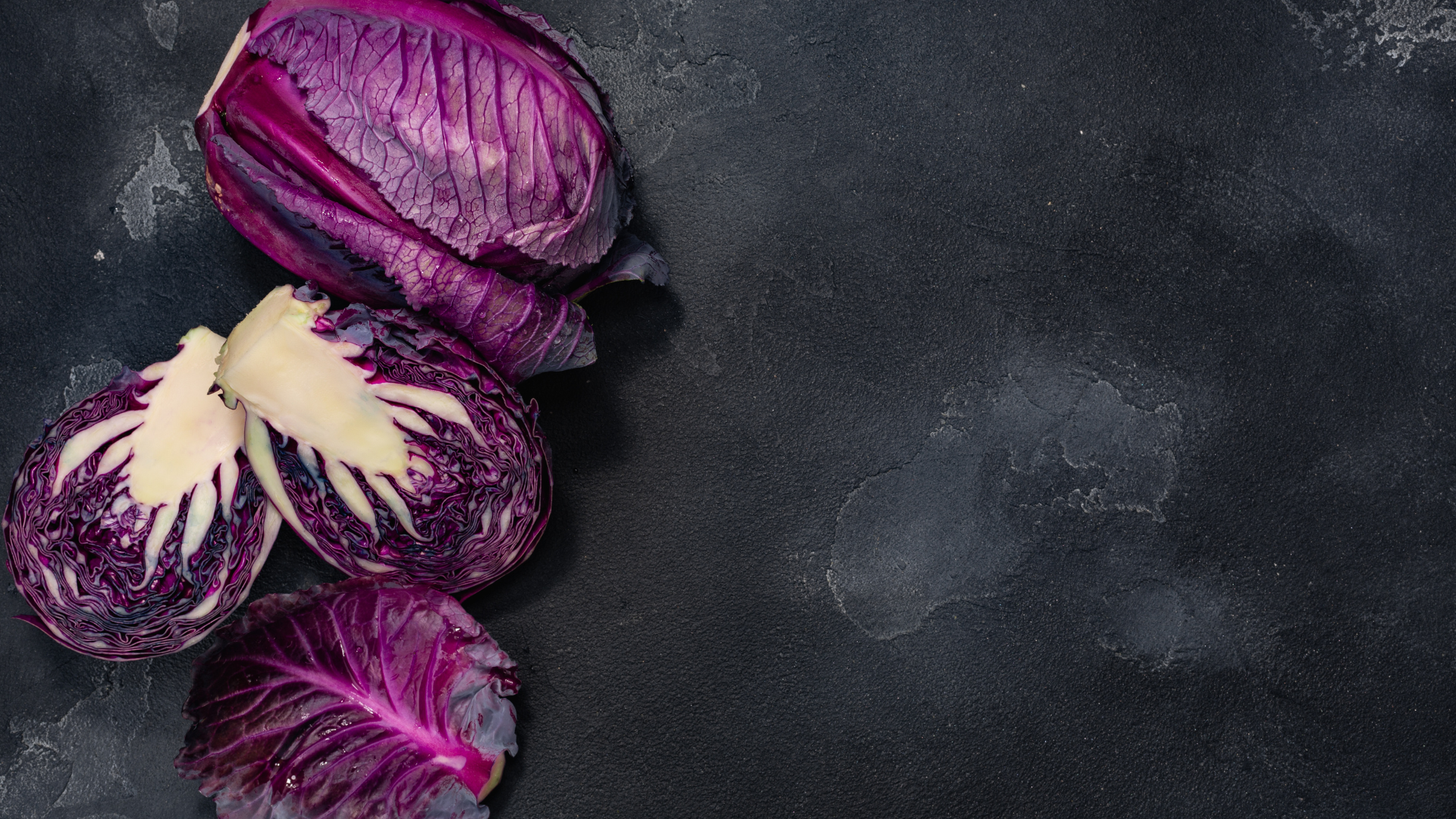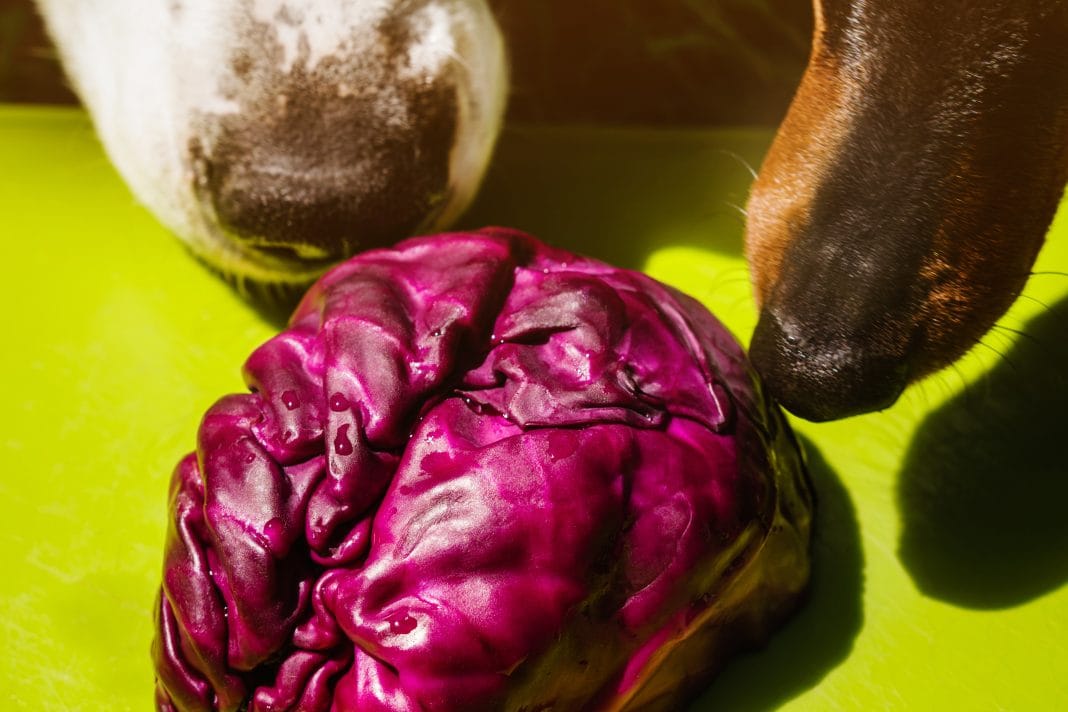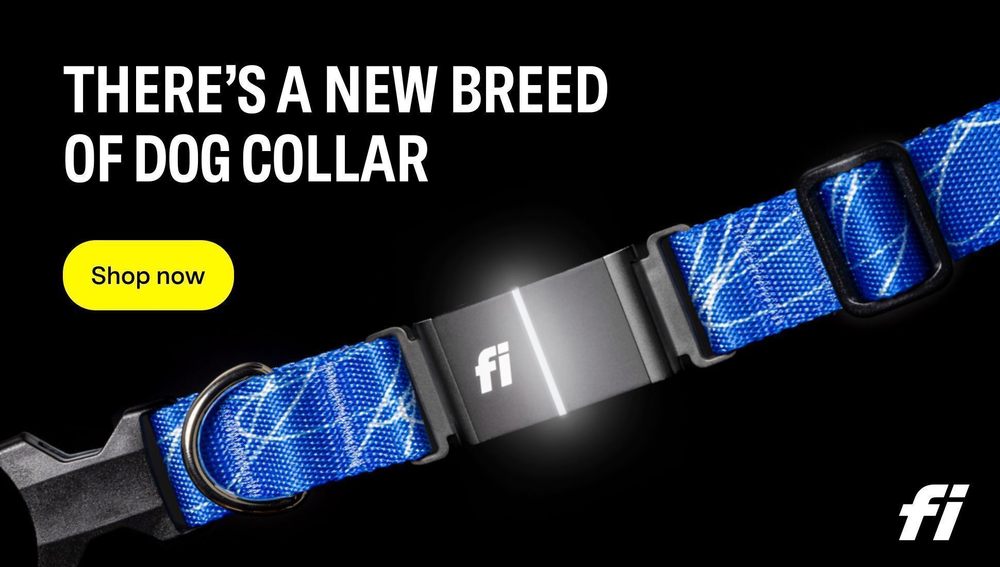Purple cabbage is a type of cruciferous vegetable that is known for its vibrant color and numerous health benefits. As a pet owner, it is natural to wonder whether or not your furry friend can enjoy the same nutritious foods that you do. Specifically, you may be curious if dogs can safely consume purple cabbage.

The good news is that purple cabbage is not toxic to dogs and can be included in their diet in moderation. However, it is important to note that dogs have different nutritional needs than humans and their digestive systems may not be able to handle certain foods in large quantities. Therefore, it is recommended to consult with a veterinarian before introducing any new foods to your dog's diet, including purple cabbage.
Nutritional Profile of Purple Cabbage
Purple cabbage is a type of cabbage with a rich, vibrant color that makes it an attractive addition to any dish. It is not only visually appealing but also packed with nutrients that are beneficial to dogs. This section will discuss the nutritional profile of purple cabbage, including its vitamins, minerals, antioxidants, and fiber content.

Vitamins and Minerals in Purple Cabbage
Purple cabbage is an excellent source of vitamins and minerals that are essential for good health. It is particularly high in vitamin C and vitamin K, both of which are important for maintaining a healthy immune system and promoting healthy bones. In fact, just one cup of chopped purple cabbage contains more than 50% of the recommended daily intake of vitamin C and more than 80% of the recommended daily intake of vitamin K.
In addition to vitamins, purple cabbage is also rich in minerals such as potassium, calcium, and magnesium. These minerals are important for maintaining healthy blood pressure, promoting healthy bones, and supporting proper muscle function.
Antioxidants and Fiber Content
Purple cabbage is also a great source of antioxidants and fiber. Antioxidants are compounds that help to protect cells from damage caused by free radicals, which can contribute to the development of chronic diseases such as cancer and heart disease. Purple cabbage contains a variety of antioxidants, including beta-carotene and anthocyanins, which give it its vibrant color.
Fiber is another important nutrient found in purple cabbage. It is essential for maintaining a healthy digestive system and promoting regular bowel movements. Just one cup of chopped purple cabbage contains more than 2 grams of fiber, which is about 8% of the recommended daily intake for dogs.
Overall, purple cabbage is a nutritious and delicious addition to any dog's diet. It is packed with vitamins, minerals, antioxidants, and fiber, all of which are important for maintaining good health and preventing chronic diseases.
Health Benefits of Cabbage for Dogs
Cabbage is a highly nutritious vegetable that is packed with vitamins, minerals, and antioxidants. It is also a great source of dietary fiber, which can help improve digestion and promote overall health in dogs. Here are some of the health benefits of cabbage for dogs:
Improving Digestion
Cabbage is a great source of dietary fiber, which can help improve digestion in dogs. Fiber helps regulate bowel movements and can prevent constipation and diarrhea. It can also help promote the growth of beneficial bacteria in the gut, which can improve overall digestive health.

Boosting the Immune System
Cabbage is rich in vitamin C, which is an essential nutrient for the immune system. Vitamin C helps stimulate the production of white blood cells, which can help fight off infections and diseases. It also acts as an antioxidant, which can help protect cells from damage caused by free radicals.
Reducing Inflammation and Cancer Risks
Cabbage contains compounds called glucosinolates, which have anti-inflammatory and anti-cancer properties. These compounds can help reduce inflammation in the body and lower the risk of developing cancer. Cabbage is also a great source of vitamin K, which can help promote bone health and reduce the risk of osteoporosis.
Overall, cabbage can be a great addition to a dog's diet. However, it should be given in moderation and cooked thoroughly to avoid any potential digestive issues. As with any new food, it is important to introduce cabbage gradually and monitor your dog's reaction.
Safe Consumption of Cabbage for Dogs
Cabbage is a nutritious vegetable that can be a healthy addition to a dog's diet when given in moderation. However, before feeding your dog any cabbage, it is important to understand the appropriate portions and frequency, potential risks and side effects, and when to consult a veterinarian.
Appropriate Portions and Frequency
When feeding cabbage to your dog, it is important to remember that it should only be given in small quantities as a treat or supplement to their regular diet. A good rule of thumb is to give your dog no more than 10% of their daily food intake in cabbage.
Additionally, it is recommended to introduce cabbage slowly into your dog's diet to avoid any potential digestive issues such as gas or flatulence.
Potential Risks and Side Effects

While cabbage is generally safe for dogs to eat, there are some precautions to keep in mind. One potential risk is bloat, a serious condition that can occur when a dog's stomach fills with gas and twists on itself. To prevent bloat, it is important to cut the cabbage into small pieces and remove the core before feeding it to your dog.
Another potential side effect of feeding cabbage to dogs is allergic reactions. If your dog experiences any symptoms such as itching, swelling, or difficulty breathing, stop feeding them cabbage immediately and consult a veterinarian.
Consulting a Veterinarian
If you have any concerns about feeding cabbage to your dog, it is always best to consult with a veterinarian. They can provide guidance on appropriate portions and frequency, as well as any potential risks or side effects specific to your dog's individual needs and health history.
In summary, cabbage can be a safe and healthy addition to a dog's diet when given in moderation and with appropriate precautions. As with any new food or supplement, it is important to introduce it slowly and monitor your dog for any adverse reactions.
Preparing Cabbage for Dogs
When it comes to feeding dogs with cabbage, preparation is key. Here are some tips on how to prepare cabbage for your furry friend:
Raw vs Cooked Cabbage
While both raw and cooked cabbage are safe for dogs to eat, cooked cabbage is generally easier to digest. Raw cabbage can be tough on a dog's digestive system, especially if they have a sensitive stomach. Additionally, raw cabbage contains a compound called thiocyanate, which can interfere with thyroid function in dogs if consumed in large amounts.
Cooking cabbage can help break down the tough fibers and make it easier for dogs to digest. When cooking cabbage for dogs, it's important to avoid adding any harmful additives such as garlic, onions, or spices. These ingredients can be toxic to dogs and cause a range of health problems.
Avoiding Harmful Additives
When preparing cabbage for dogs, it's important to avoid adding any harmful additives. Garlic and onions, for example, can damage a dog's red blood cells and cause anemia. Spices and seasonings can also be harmful to dogs, especially if they contain salt or other additives.
Instead of adding butter or other seasonings to cooked cabbage, try adding a small amount of low-sodium chicken or beef broth. This can add flavor to the cabbage without adding any harmful ingredients.
Overall, cabbage can be a healthy and nutritious addition to a dog's diet when prepared properly. Whether raw or cooked, cabbage can provide dogs with a range of vitamins and minerals that are essential for good health.
Specific Concerns and Considerations
Thiocyanate and Hypothyroidism
Purple cabbage contains a compound called thiocyanate, which can interfere with the thyroid gland's ability to produce hormones. This can be a concern for dogs with hypothyroidism, a condition where the thyroid gland does not produce enough hormones. Dogs with hypothyroidism may already have an impaired thyroid function, and consuming large amounts of thiocyanate can worsen the condition. Therefore, it is important to limit the amount of purple cabbage given to dogs with hypothyroidism.
Choking Hazards and Proper Chewing
Purple cabbage can be a choking hazard for dogs, especially if it is not cut into small pieces or if the dog swallows large pieces whole. It is important to supervise dogs while they are eating purple cabbage and ensure that they are chewing it properly. If a dog is prone to swallowing food without chewing, it may be best to avoid giving them purple cabbage altogether.
Differences Among Dog Breeds
Different dog breeds may have different sensitivities to thiocyanate and choking hazards. For example, brachycephalic breeds with short snouts may have a harder time chewing and swallowing food, making them more susceptible to choking hazards. Additionally, some breeds may be more prone to hypothyroidism than others. It is important to consider a dog's breed and individual health needs when deciding whether or not to give them purple cabbage.

In summary, while purple cabbage can be a healthy addition to a dog's diet, there are specific concerns and considerations that should be taken into account. Limiting the amount given to dogs with hypothyroidism, supervising dogs while they eat, and considering breed-specific sensitivities can help ensure that dogs can safely enjoy the benefits of purple cabbage.
Incorporating Cabbage into a Dog's Diet
Cabbage is a nutritious vegetable that can be a healthy addition to a dog's diet. If you are considering adding cabbage to your dog's meals, here are some tips to help you do it safely and effectively.
Mixing with Regular Dog Food
One way to incorporate cabbage into your dog's diet is to mix it with their regular dog food. Start by introducing small amounts of cooked and chopped cabbage into their meals and gradually increase the amount over time. Be sure to monitor your dog's reaction to the cabbage and adjust the amount accordingly.
Creating Balanced Meals
Cabbage can be a part of a balanced meal for your dog. It is important to ensure that your dog's diet includes a variety of vegetables, such as broccoli, Brussels sprouts, carrots, green beans, kale, spinach, and celery. You can also include fruits, such as blueberries, and other vegetables, such as bok choy, to provide a range of nutrients.
When creating a balanced meal for your dog, it is important to consult with your veterinarian to ensure that your dog is getting all the necessary nutrients. You can also consider consulting with a veterinary nutritionist to create a customized meal plan for your dog.
In conclusion, cabbage can be a healthy addition to a dog's diet when introduced in moderation and as part of a balanced meal. Be sure to monitor your dog's reaction to the cabbage and adjust the amount accordingly. Consult with your veterinarian or a veterinary nutritionist to ensure that your dog is getting all the necessary nutrients in their diet.
Recognizing Adverse Reactions
When feeding purple cabbage to dogs, it is important to keep an eye out for any adverse reactions. While it is generally safe for dogs to consume in moderation, some dogs may experience digestive issues or allergic reactions.
Signs of Digestive Issues
Digestive issues may include gas production, constipation, or diarrhea. These symptoms can occur if a dog consumes too much purple cabbage or if they have a sensitive stomach. It is important to monitor a dog's bowel movements after feeding them purple cabbage and adjust the amount accordingly.
Monitoring for Allergic Reactions
Allergic reactions to purple cabbage are rare in dogs, but they can occur. Signs of an allergic reaction may include digestive upset, such as vomiting or diarrhea, as well as skin irritation or itching. If a dog exhibits any of these symptoms, it is important to stop feeding them purple cabbage and consult a veterinarian.
Purple cabbage contains a compound called raffinose, which can cause gas production in some dogs. If a dog experiences excessive gas after consuming purple cabbage, it may be a sign that they are not able to digest the compound properly. In this case, it is best to limit or avoid feeding them purple cabbage altogether.
Overall, while purple cabbage can be a healthy addition to a dog's diet, it is important to monitor their reaction and adjust accordingly. By recognizing the signs of adverse reactions, pet owners can ensure their furry friends stay healthy and happy.
Conclusion

In conclusion, while purple cabbage can be a nutritious addition to your dog's diet, it's essential to introduce it gradually and monitor for any adverse reactions. When served in moderation and appropriately prepared, purple cabbage can offer valuable nutrients and antioxidants to support your dog's health and well-being.
Frequently Asked Questions
- Is raw purple cabbage safe for dogs to eat?
- Yes, raw purple cabbage is safe for dogs to eat in moderation. However, it is important to note that some dogs may have difficulty digesting cabbage, which can lead to digestive issues such as gas or diarrhea.
- What are the health benefits of feeding cabbage to dogs?
- Cabbage is a low-calorie vegetable that is high in fiber, vitamins, and minerals. Feeding cabbage to dogs can provide a range of health benefits, including improved digestion, immune system support, and reduced inflammation.
- How often can a dog safely consume purple cabbage?
- Dogs can safely consume purple cabbage as an occasional treat or as part of a balanced diet. It is recommended to introduce new foods gradually and to monitor your dog's reaction to the cabbage.
- Are there any risks associated with dogs eating cabbage?
- While cabbage is generally safe for dogs to eat, it can cause digestive issues such as gas or diarrhea in some dogs. Additionally, cabbage contains compounds that can interfere with thyroid function, so it is important to avoid feeding large amounts of cabbage to dogs with thyroid issues.
- Can dogs eat a combination of purple cabbage and carrots?
- Yes, dogs can eat a combination of purple cabbage and carrots. Both vegetables are safe for dogs to eat and can provide a range of health benefits.
- What should I do if my dog experiences diarrhea after eating cabbage?
- If your dog experiences diarrhea after eating cabbage, it is important to monitor their condition and ensure they are getting enough water to prevent dehydration. You may also want to temporarily remove cabbage from their diet and reintroduce it in smaller amounts to see if their symptoms improve. If your dog's symptoms persist or worsen, it is recommended to consult with a veterinarian.




